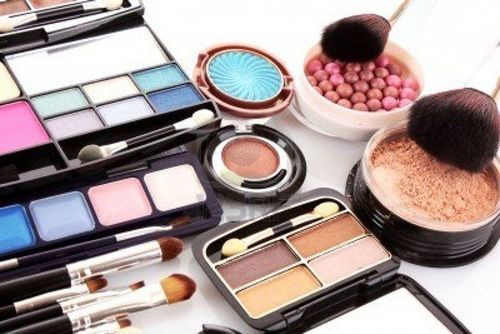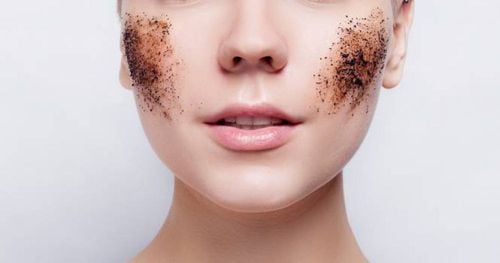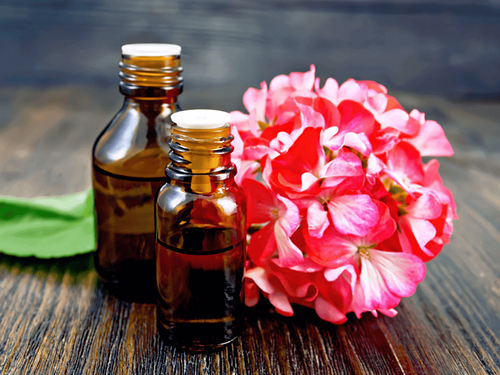This is an automatically translated article.
You can find perfume in everyday cosmetics. So why do so many products have perfume in their cosmetics? How does the skin react to perfumes?
Nowadays there are many products that we use every day that contain perfume in the ingredients. But not most are cosmetics. Some of these products are regulated by the FDA as cosmetics, while others are in other product categories and are regulated differently, depending on how they are used.
1.Why is there perfume in cosmetics? Most people love cosmetics, including scented skin and hair care products. Cosmetic companies have conducted research to determine how important a product with fragrance is to a consumer's purchasing decision, as well as the experience of using the product at home. of cutomer.
Another reason why manufacturers include perfume in cosmetics, is that there are many cosmetics of natural origin that will not bring fragrance without the help of fragrance.
Perfume is added with the purpose of helping to mask the unpleasant smell of skin care products that have been packaged for too long before use, especially those with natural ingredients.
2. How to identify cosmetics and perfumery products and products that contain perfume but are not cosmetics According to the definition of the United States Food and Drug Administration (FDA), a cosmetic is a product that is used To be applied to the body for the purpose of makeup, cleansing or to change the appearance to increase attractiveness, become more attractive but the structure and function of the body remains unchanged.
According to this definition, perfume is defined as a cosmetic including perfume, cologne (a perfume with a pleasant scent and can be used on the skin), aftershave (a liquid with a pleasant scent that is pleasing to men) use to apply on face after shaving).
In addition, perfume ingredients in cosmetics also include shower gel, shampoo, shower gel, body cream, shaving cream. Even some products labeled "unscented" may still contain fragrance ingredients to mask the unpleasant odors of other ingredients.
However, some products are also applied to the body and scented but are intended to cure, treat or prevent disease, affecting the body's structure or function. These products are regulated as drugs, or sometimes both cosmetics and drugs.
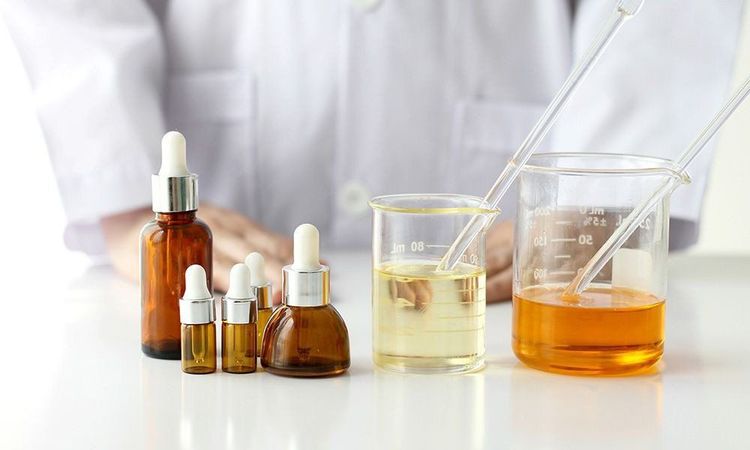
Nước hoa trong mỹ phẩm giúp tăng độ thu hút của người sử dụng
3. Are essential oils and aromatherapy considered perfumery cosmetics?
There is currently no regulatory definition of essential oils, although people often use the term to refer to certain oils extracted from plants. In products containing essential oils, they are represented as fragrances.
Meanwhile, if a product uses aromatherapy with the effect of preventing or treating a disease, which can affect the body's function or structure, then it is considered a drug.
Similarly, perfumery cosmetics also include massage oils for lubrication. But if the oil contains perfume and is used for massage, pain relief, or muscle relaxation, then it is considered a drug or possibly a cosmetic.
4. The safety of perfumery cosmetics
4.1 Safety requirements of perfumes in cosmetics Fragrance ingredients in cosmetics must meet the same safety requirements as other cosmetic ingredients. The law does not require FDA approval before products are put on the market, but they must be safe for consumers when used according to the directions printed on the label or as people are used to.
Companies and individuals that manufacture or market perfumery cosmetics have a legal responsibility to ensure that their products are safe and have appropriate labels that reflect the fragrance ingredients in their products.
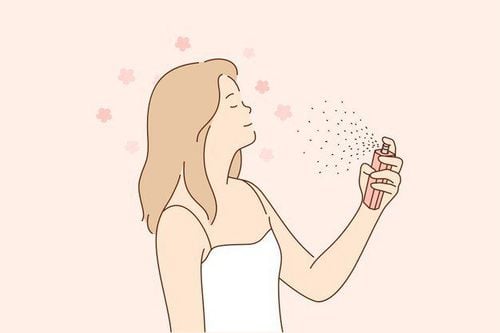
Nước hoa trong mỹ phẩm cần đảm bảo tiêu chuẩn của FDA
4.2 Is it safe to use perfume cosmetics? Some people may be allergic or sensitive to certain ingredients in cosmetics, even if those ingredients are safe for most people. Some ingredients in fragrance formulations have the potential to cause allergic reactions or sensitization in some people.
Allergies caused by perfumes in cosmetics are caused by volatile reactions, especially to skin care products, with degrees of sensitivity to other negative reactions. These reactions can happen to all skin types, not just those with sensitive or red-prone skin.
Consumers may not notice these sensitivities at first, as they progress silently and cause only minor, short-term damage. But if left untreated, these reactions can become more severe.
Legally, the FDA does not have the legal authority to require cosmetic manufacturers to label cosmetics as allergens. So, if you're worried or suspect that your body is sensitive to fragrance chemicals, you should choose fragrance-free products and double-check the ingredient list.
In short, perfumes in cosmetics have been used more and more popularly, in order to help create a pleasant fragrance when using the product. But some consumers may experience skin irritation when using it. Therefore, if you are worried about your body being sensitive to fragrance, you should choose unscented products and check the ingredients of that product.
Please dial HOTLINE for more information or register for an appointment HERE. Download MyVinmec app to make appointments faster and to manage your bookings easily.
Reference source: fda.gov - paulaschoice.com




